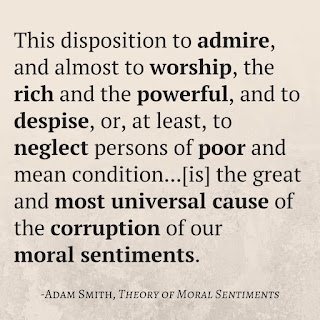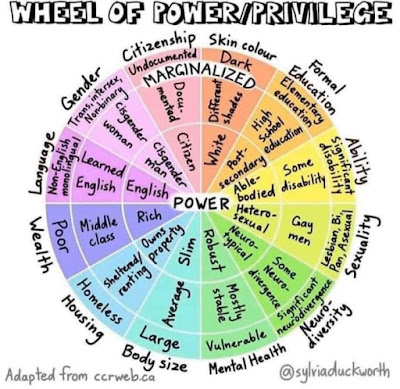Don't look away
Matthew 25: 14-30
New Ark United Church of Christ, Newark, DE
November 15, 2020
Jesus’ parables not only get us to think—on some level they also bother us, and they’re supposed to. It’s too easy to listen to a story we agree with, affirms our implicit bias, nod our heads and move on to the next thing. When scripture bothers us, when we disagree with it, we’ve started a conversation, an argument, a debate with it, and it is through challenges to our assumptions and what we know so far that then we grow.
In the parable of the talents, traditionally the master has been interpreted as God or as the second coming of Jesus. The master is generous—check. The master rewards faithfulness—check. The master invites these servants into abundance and joy—check. But according to one servant, the master is also harsh and reaps profits where he did not invest and takes credit where he did not plant the seed and thus, inciting fear in those who serve him. The master then punishes the one with the least by casting them out. This hardly sounds like the God of justice and mercy but more like a ruthless businessman with a reality TV show.
This story could just as easily be called the parable of extreme wealth. A talent is a weight measurement of silver, worth about 6,000 denarii, the equivalent worth of approximately 16 years of day labor, about $4,000 in today’s money—tens of thousands more if we adjust for inflation. Five times that sum would an eye-popping amount of money for Jesus’ listeners. For these servants to bring back returns on such sums would signify only one thing: that these returns were achieved by dishonest means: extortion, exploitation, fraud, or moneylending, all of which were prohibited by the laws of Moses.
More than that, the Greek word for servant or worker translates more accurately as slave. Those enslaved by the Roman Empire had no ownership rights. These slaves were handling the kind of wealth that they could never dream of. Rather than being faithless, the third slave is more like a whistleblower, calling out the corrupt system and those who ensure it, even though it cost them everything.
In a way this parable of the talents is an un-parable: it shows us the world as it is rather than as it could be, and not much has changed since it was told to 1st century followers of Jesus. Those who are employed by those with extreme wealth—because of unfair wages, their poverty is slavery—still have little choice but to cooperate with and enable a system that exploits them. There are complicated reasons why systems like this continue. Amazon is one example of a business that often profits from inflated prices on their main platform and on their Marketplace sites and yet does not pay a living wage for those who exhaust their minds and bodies in vast warehouses. And yet many disabled people and those with limited income depend on goods delivered to their door at prices they can afford. This also goes for stores that offer extreme discounts the day after Thanksgiving.
And so it falls to those who can afford to, to take their “talent” and spend it, invest it in small, local businesses that suffer because of the volume of the big box stores. Just as with our benevolence monies, we give it to missions and non-profits that do not receive large grants and donations but benefit from the modest donations we are able to give.
But this parable speaks to an even deeper, more insidious problem in our society, that of dark money—money donated by political nonprofits that do not have to disclose the identity of their donors. During the Senate Judiciary hearings for Amy Coney Barrett’s nomination to the Supreme Court, Senator Sheldon Whitehouse gave everyone an education about the dark money that supports the nominations of conservative judges through advertising campaigns and telemarketing; judges whose rulings would benefit those donors. Over the last four years 220 conservative judges have been appointed to federal appeals courts, more than any recent president. And yet both parties benefit from this system. The question is, who wants to fix it? Who is willing to take on the role of the whistleblower slave and call out the system and fix it? There is no safe path when taking on corruption and power.
Our government is enslaved to big money, dark money, hidden money, and those who serve in our government benefit from this system. While our social politics about human rights and civil rights are important, indeed, fundamental to a free society, they are also exploited as a smokescreen for a twofold purpose. One, it distracts us from this deep corruption that has bought and sold our democracy. And two, the social politics fan the flames of partisanship that get folks elected and keep us divided. We cannot truly act as “We the People” when 73 million people vote for one candidate, 78 million people vote for the other candidate and 90 million people whose votes are suppressed or don’t vote at all.
Much of this is rooted in the racism and racist policies that keep wealth exactly where it is. Those who have much, more is given to them, while those who try to keep the little they have, have it taken away from them and are then cast out, evicted, laid off, rendered homeless, which would make anyone weep and grind their teeth. None of this is going to go away anytime soon. It’s not about Democrat vs. Republican but about humanity vs. itself. Ibram Kendi writes, “White supremacist is code for anti-White, and White supremacy is nothing short of an ongoing program of genocide against the White race. In fact, it’s more than that: White supremacist is code for anti-human, a nuclear ideology that poses an existential threat to human existence.”
In other words, White supremacists blame non-Whites for the problems of White people, all the while supporting rich White people who institute racist policies so that they can reap where they do not sow, gather where they do not scatter seed, no matter who it hurts. Though we may have hope for the near future, we cannot get complacent or look away from the problems that were here and have been festering for decades. Racism is the original sin of this nation. It took us four hundred years to get to this place. It will take nothing short of every one of us doing what we can to abolish the myth of Whiteness, to do the work of becoming an antiracist, and investing in Black and Indigenous lives and people of color.
When we give to the Church and to other grassroots justice work with our time and resources, we are taking our one talent out of the racist system that we might help dismantle that system. When we put our money into a local bank or even better, a community based credit union we are helping to dismantle that system. When we buy less and give more away we are helping to dismantle that system. When we realize that we are living in a future created by slavery, we may then be able to find the moral courage to invest our nation's ill-gotten talents in reparations, in equal education, in healthcare for all, in the flourishing of humanity.
The kindom comes when we are able to not only imagine a different world but when we offer ourselves, when we enflesh our hopes. The season of Advent is almost here, when Mary sings her song of justice, that the poor will be filled with good things and the rich will be sent away empty. We long for peace but we can no longer be at peace with our participation in the status quo. In truth, this is the parable of the whistleblower, the parable of the truthteller, the parable of the pattern breaker. And that outer darkness is where God is, where Jesus made his home: with the marginalized, with the weeping and those with their teeth on edge, where the Church is called out and called to be.
This work, this giving, this witness requires risk and makes us vulnerable but it also humanizes us and everyone else. There is no other. There is only us.
Benediction – enfleshed.com
Love is a risky endeavor, but we are made capable.
Because love lives in us, we can practice solidarity with courage.
Because love is alive around us, we can imagine new worlds together.
Because love is eternal, we can trust in it even when we struggle to perceive it.
This is the power of God in us.
Let us go and live it with faith.
Amen.









Comments
Post a Comment